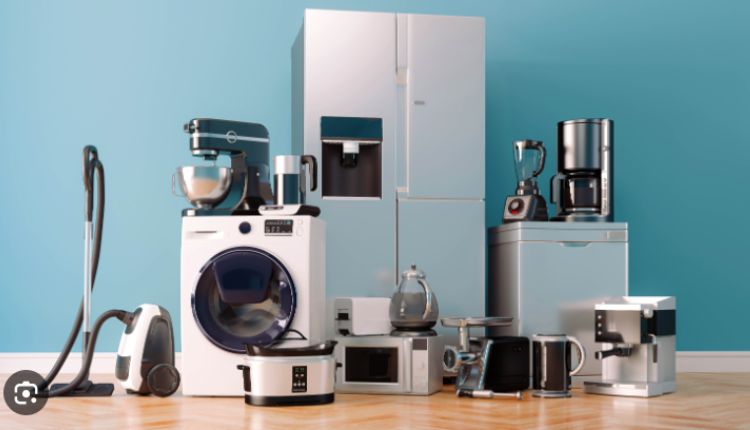Purchasing a home appliance extended warranty can be a great investment for homeowners. However, it is important to understand the advantages and disadvantages before signing a contract. An appliance warranty is an insurance policy that protects homeowners from unexpected repairs and replacements. It is typically sold at the time of purchase and can be purchased from an appliance retailer or the manufacturer.
Cost
An appliance protection plan can save you money on repairs and replacements, especially if your manufacturer’s warranty expires. However, the cost of these plans can be quite high. The best way to save money on this type of warranty is to shop around. A home warranty company can help you compare appliance protection plans. Choose a reputable home warranty provider with a track record of customer satisfaction. For example, Consumer Affairs accredited home warranty provider Select Home Warranty offers comprehensive coverage and affordable pricing for homeowners. The company also has a wide network of authorized service technicians that can come to your aid quickly.
Beware of salespeople pushing extended warranties. These salespeople are paid commissions for selling these warranty plans. In addition, they often overestimate how likely the product is to break down. Instead of purchasing an extended warranty, try to purchase appliances that are covered by a manufacturer’s warranty. This will save you money in the long run.
Coverage
A home appliance extended warranty is a protection plan that is purchased before the manufacturer’s warranty expires. It covers repairs on a specific appliance, and can be offered by the manufacturer or retailer, or by a third-party provider. These plans can include 24/7 support and other perks, such as food spoilage reimbursement. They also cover a portion of the cost of replacing a broken appliance. These protection plans may not replace the original warranty, but can be an excellent alternative.
Many warranty providers, including Consumer Priority Service, pair homeowners with technicians who specialize in their brand of appliances. While these companies do not promise a fixed timeline for the repair process, they can provide peace of mind that the repairs will be completed promptly and correctly. Some providers offer all-in-one appliance warranties, while others allow homeowners to select the individual appliances they want covered. Compared to home warranty insurance policies, these options are more affordable and tailored to the homeowner’s needs.
Repairs
Most appliances come with a manufacturer’s warranty that will cover repairs and replacements for a period of time. However, these warranties expire, and homeowners may find that they need additional coverage to protect their investment. Protection plans and extended warranties are available through retailers and third-party companies. When an appliance breaks down, a service technician will visit your home and determine the best solution. He or she will then repair the appliance or replace it with a similar model. The cost of the service is usually a one-time fee that you pay to the technician.
The best appliance extended warranty plans have flexible terms and include many types of repair services. Some policies even cover a certain number of repairs per year. Regardless of which plan you choose, it is important to read the fine print and understand how it works. Many warranty providers require that you follow a routine maintenance schedule to keep your appliance covered by the policy.
Customer Service
Most major appliances come with a manufacturer warranty, but some retailers and credit card companies also sell extended service plans. These contracts are typically expensive and involve a complicated return and claims process. Instead, consumers should consider bundling coverage for all home appliances and systems through a reputable home warranty company. This type of service provides a network of contractors and access to expert advice from technicians. A home appliance extended warranty is a good investment for homeowners that want to protect their major appliances from wear and tear.
The most important factor in appliance warranty success is meticulous record-keeping and following the company’s appeals process. If you have a problem with a warranty item, check its documentation, including the purchase receipt and owner’s manual. In some cases, the product may have information on the warranty provider directly written on its surface. In addition, look at the coverage limits and annual caps to make sure you are getting the best value for your money. These limits can include individual repair costs and total payouts. Some providers place caps on certain categories, such as heating, ventilation and air conditioning (HVAC) systems.
Conclusion
In conclusion, purchasing an extended warranty for your home appliances can provide peace of mind and financial protection against unexpected breakdowns. While it may involve an additional cost, the benefits of extended coverage outweigh the risks, ensuring your appliances are safeguarded and reducing potential repair expenses in the long run.
FAQs:
Is an extended warranty worth it for home appliances?
Yes, an extended warranty can be worth it for home appliances, especially for expensive or complex devices. It offers extended coverage beyond the manufacturer’s warranty, safeguarding you against unforeseen repair costs and providing peace of mind.
What does an extended warranty typically cover?
Extended warranties typically cover mechanical and electrical failures due to normal usage. They may include repairs or replacements for faulty parts and labor costs. However, it’s essential to read the terms and conditions carefully to understand specific inclusions and exclusions for each appliance.

